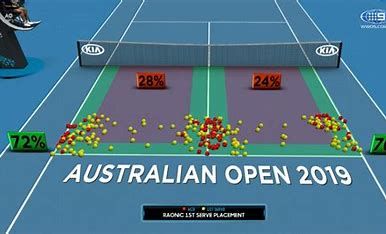The Analytics Advantage On the Field
ANALYTICSSPORTS


"Moneyball" is about the transformative power of analytics - but it only talks about one sport and one type of decision (human capital) but there is a lot more to it. This post discussed the types of decisions powered by analytics, and its different applications and shortfalls across sports.
"Moneyball" made a lot of noise by highlighting the importance of analytics in sports, specifically stretching the value of the dollar in running an MLB team.
But analytics goes a lot further than that. In sports it operates on at least 3 levels -
1) investment optimization (aka signing / drafting decisions),
2) game strategy, and
3) play-by-play choices.
#1 is relevant across sports and in business in general (managing a sports team isn't much different than running a business in a hypercompetitive market).
#2 and #3 are more sport-specific - with #2 being a factor in free-flowing sports (basketball, soccer, ice-hockey) and #3 in stop-and-go sports (football, baseball), with #3 especially subject to the variable psychological factors.
All sports use analytics at all three levels - what differs is the balance and the decision maker (whether it's the player on the field or the coach on the sidelines).
Soccer and basketball are more about making strategic choices in setting the pace of the game and optimizing individual matchups that maximize odds of winning.
Football is more about selecting the optimal play from an array of discrete choices given the specific game conditions (score, yardage, time left, etc). It is particularly amenable to the application of analytics - though the human element is always the wild card.
Tennis (and to an extent individual endurance athletics) is somewhere in the middle. It is the most 'human' of every sport where psychological factors can at times outweigh technical ones. It is an individual sport, where time is not a factor (you can't 'bleed' time when you're winning) and so like in baseball no match is ever won or lost until the last point is played. Because of that, it is a sport where the use of analytics (the type of serve or returns to hit, positioning on the court, expending effort in long rallies) yields more variable results - psychological factors makes individual performance highly variable. It still has a major role to play in setting and adjusting strategy over the course of the game.
Marathon (or any long race) is another interesting case study that I'm looking to understand better.
There is no equation that maximizes results in part because of the complexities of human psychology - so much of it is a judgment call. And so often the right decision still yields a bad outcome (and heckling from the cheap seats) because the alternative decision statistically would have as well.
A courageous (and smart) decision to play a challenging 4th down may move you from 30% to 40% win probability - and you're still more likely to lose the game than not. But it will bear fruit over time.
In future posts I'm looking to deep-dive into applications, advantages and limitations of analytics in different fields. Sports is where I start because it's a more controlled environment (set rules, clear outcomes). Things get messier in business applications.
